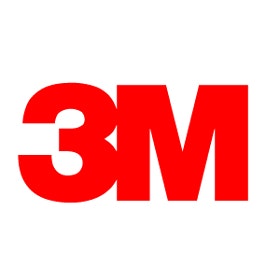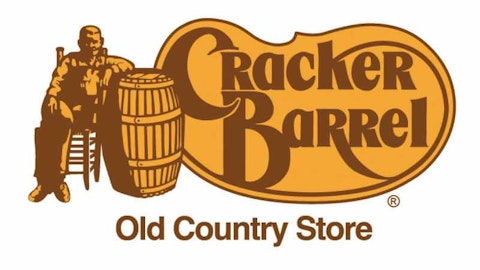In this low interest rate environment you may be giddy at the sight of a company whose dividend translates into yields of 2-3%. When you evaluate a publicly traded business for income purposes you must always go beyond simply looking at the dividend yield. Important strategic elements such as barriers to entry, probability of product obsolescence, and brand equity need consideration. You can see at least a few of these elements in the three companies discussed below.
An innovation machine
Global technology company 3M Co (NYSE:MMM) currently pays a dividend of $2.54 per share per year, translating into a yield of 2.3%. Most people know this company by its series of office supplies such as Post-it notes and Scotch tape products. However, this company is also a technologically innovative giant that operates in five segments providing products and solutions in areas such as industrial, healthcare, electronic display, and product safety.
Research and development gets heavy emphasis in 3M Co (NYSE:MMM)’s 2012 annual report. The company’s greatest strength lies in its ability to produce new products and solutions for its customer base as old products go into obsolescence. The knowledge quality that the employees put into the company’s innovative culture as well as the capital outlay to effectively compete serve as barriers to entry. The iconic 3M Co (NYSE:MMM) brand gives the company a certain amount of brand equity.
In 2012, 3M increased revenue by 1%. Free cash flow declined 3% due to higher capital expenditures, a necessity in a business such as 3M Co (NYSE:MMM). It prudently paid out only 42% of its free cash flow in dividends.
3M sat on top of a pretty clean balance sheet as of the end of last year. Its cash and investments calculate to 25% of stockholder’s equity. 3M Co (NYSE:MMM)’s long-term debt stands at 27% of stockholder’s equity.
A dynamic global economy will increasingly crave the innovation that 3M provides. 3M Co (NYSE:MMM)’s patent base, product portfolio, culture of innovation and brand recognition will ensure future dividend payments and possible increases.
A unique family atmosphere
Restaurant and “country store” Cracker Barrel Old Country Store, Inc. (NASDAQ:CBRL) pays $3 per share per year in dividends, calculating to a yield of 3.3% as of this writing. The country store portion of Cracker Barrel sells difficult to find products such as oddly branded sodas and uniquely packaged candies from a bygone era. The restaurant serves food of a homemade quality not found in other chains.
The country store/restaurant combo provides you with a unique experience that sets Cracker Barrel Old Country Store, Inc. (NASDAQ:CBRL) apart from its multiple competitors and provides it with brand equity.
Last year, Cracker Barrel Old Country Store, Inc. (NASDAQ:CBRL) increased sales and free cash flow 6% and 104% respectively. It only paid out 16% of its free cash flow in dividends. Cracker Barrel also improved its balance sheet last year: Cash and investments made up 40% of its stockholder’s equity. Long-term debt to equity decreased from 205% to 137% last year.
Cracker Barrel Old Country Store, Inc. (NASDAQ:CBRL)’s unique experience keeps drawing customers in. Comparable restaurant and retail sales increased 3% and 6% respectively in its most recent quarter. You would be correct in arguing that Cracker Barrel’s many competitors provide a lot of choices for the consumer, creating a threat to the company’s dividend.
With that said, you can invest for the dividend and possible capital gains, but pay due diligence to declining profitability stemming from new competition and macroeconomic conditions. Casual dining represents a luxury consumers can live without during difficult times.
An iconic portfolio of snacks and beverages
Food and beverage giant PepsiCo, Inc. (NYSE:PEP) currently pays $2.27 per share per year in dividends and yields 2.8%. Pepsi’s bottling and distribution infrastructure serve as a significant barrier to entry for competitors. Food and beverages never go out of style.
PepsiCo’s brand portfolio consists of some of the most recognized brands in the world. These brands include Pepsi Cola, Mountain Dew, Lay’s potato chips, and Quaker oats. This gives the company product diversity that competitors such as Coca-Cola lack.
In 2012, PepsiCo, Inc. (NYSE:PEP)’s overall revenue declined 1.5% due to adverse currency translations and restructuring. Free cash flow increased 3% due to lower capital expenditures. PepsiCo, Inc. (NYSE:PEP) paid 56% of its free cash flow in dividends.
PepsiCo looks okay balance sheet wise. Its cash to stockholder’s equity stood at 30% as of the end of last year. PepsiCo, Inc. (NYSE:PEP)’s long-term debt to equity ratio stands at 105%. Its operating income exceeds interest expense by a respectable 10 times.
PepsiCo’s high barriers to entry, its portfolio of needed food and beverage products, and brand name recognition should protect and possibly increase its dividend for years to come as PepsiCo, Inc. (NYSE:PEP) expands into emerging markets and continues with product innovation in already established markets.
Conclusion
In summary, you can rest easy when you see dividend paying companies such as these that provide customers with needed products that will never go out of fashion or continually build new products that replace old ones, provide differentiated positive experiences and possess brand equity. All of these things keep the customer coming, which provides the subsequent cash flow foundation for future dividends.
William Bias owns shares of 3M and Coca-Cola mentioned. The Motley Fool recommends 3M Co (NYSE:MMM), Cracker Barrel Old Country Store, Inc. (NASDAQ:CBRL), and PepsiCo. The Motley Fool owns shares of PepsiCo, Inc. (NYSE:PEP).
The article Are These Dividend Payers Worthy Investments? originally appeared on Fool.com.
William is a member of The Motley Fool Blog Network — entries represent the personal opinion of the blogger and are not formally edited.
Copyright © 1995 – 2013 The Motley Fool, LLC. All rights reserved. The Motley Fool has a disclosure policy.






